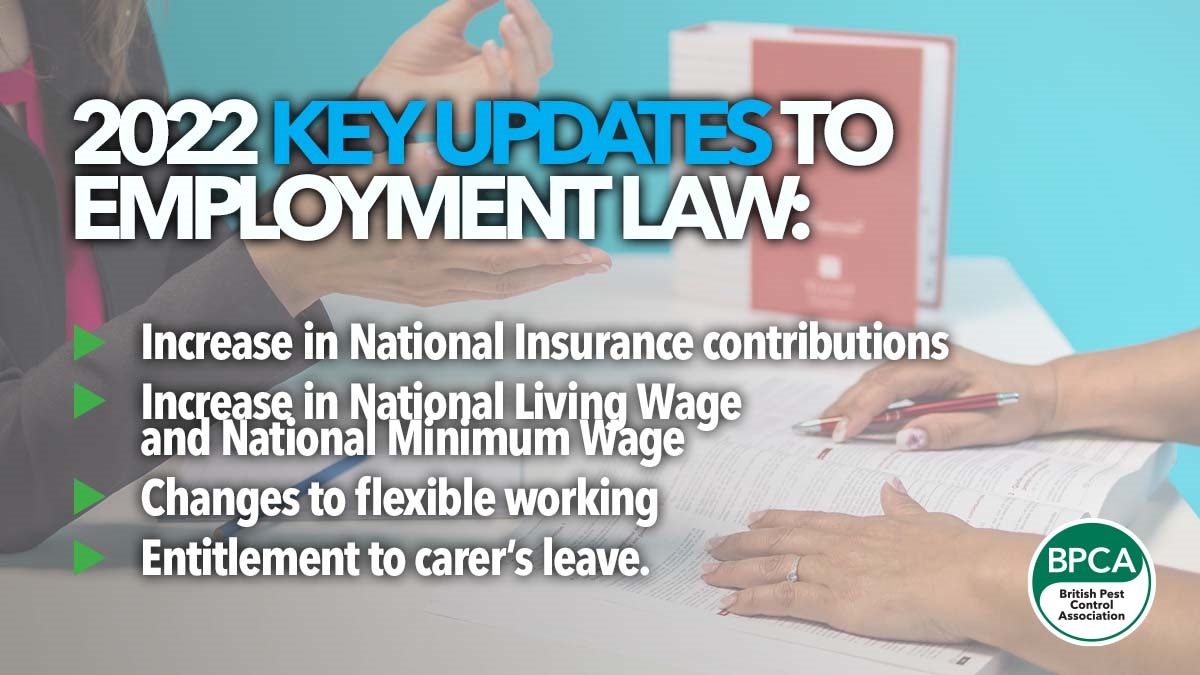HR AND BUSINESS
We've summarised some of the key changes to employment law which come into force next year in the UK and are likely to affect pest management businesses.

Increase in National Insurance contributions
A rise of 1.25% in National Insurance contributions, applying to all working adults in the UK and matched by employers, will come into effect in April 2022, with tax rates on shared dividend being raised by the same amount.
From 2023, this will become a separate tax on earned income, calculated in the same way as National Insurance and appearing on an employee’s payslip as a Health and Social Care Levy.
Increase in National Living Wage and National Minimum Wage
The National Living Wage will rise from £8.91 per hour to £9.50 in April 2022.
The minimum rates for younger workers will also rise:
- £8.36 an hour to £9.18 an hour for those aged 21 to 22
- £6.56 to £6.83 for those aged 18 to 20
- £4.62 to £4.81 for under 18s
- £4.30 to £4.81 an hour for apprentices.
Changes to flexible working
The Government is currently consulting on reforms to the Flexible Working Regulations 2014 to reflect changing attitudes to flexible working. The consultation looks at:
- Making the right to request flexible working a ‘day one right’
- Changing the administrative process regarding frequency of requests and time to respond
- Validating whether the eight prescribed business reasons that employers can put forward to reject a flexible working request are still fit for purpose
- Requiring employers that have concluded that a request cannot be accommodated to show that they have considered possible alternative working arrangements
- Raising awareness that it is possible for employers to agree to temporary flexible working arrangements.
Entitlement to carer’s leave
The government has announced its intention to introduce entitlement to carer’s leave as a ‘day one right’ for employees, with unpaid carers able to take up to five working days of unpaid leave per year in individual day or half day increments.
Carers will need to give notice of twice the length of the time being requested as leave, plus one day (in line with annual leave notice).
Employees can self-certificate and evidence of entitlement will not be required.
GOT ANY QUESTIONS?
If you're a BPCA member and you've got some questions about employment law, get in touch with us and we can get you the answers.
technical@bpca.org.uk

Source: Online